by Michael Liss
Shall oppressed humanity find no asylum on this globe? —Thomas Jefferson, 1801
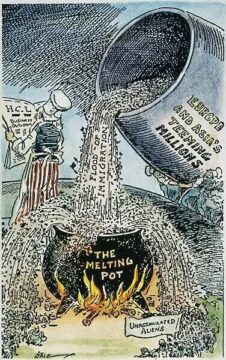
Last month, after 3 Quarks Daily published my “A Requiem For Post Mortems,” I got a direct email from a reader politely critiquing it. We exchanged emails afterwards, and I asked him if I could raise some of his points in a subsequent post. I’ve chosen one, not intending to diminish his other ideas, but because this one, where he said I’d “misse[d] first on the importance of the migration issue, i.e., that … Trump was right and Dems wrong on the need to control migration [and] that Trump controlled migration much better than Biden, who didn’t even try until the 3d trimester” has the most salience right now.
So, since Elon and Vivek and Laura Loomer and pretty much all of MAGA-land are talking about immigration, let’s go there. Let’s do something we have never ever been good at and talk about immigration.
We can start by acknowledging my correspondent’s point, although I would phrase it differently. Certainly, from an electoral perspective, Trump was right on the need to control illegal immigration. Biden didn’t do it until very late in his term, too late to help Harris in the election. It is not clear to me why Biden didn’t move more aggressively earlier, but, during his four years in office, aggregate immigration, legal and illegal, rose to a level not seen since 1850. I can ascribe to Biden a good-hearted intention—a genuine desire to ease the suffering of others—but it cannot be ignored that part of a President’s job is to be practical and even a little cold-hearted when the situation requires it, and Biden, for whatever reasons, wasn’t. We don’t have hard polling data that indicates that swing voters, and even some Biden 2020 voters, went Trump in 2024 solely because of the immigration issue, but it could not have helped Harris.
Would voters have been less critical of Biden’s approach if he had been able to curtail illegal immigration while otherwise maintaining a generous posture? Hard to say, not just because of the potency of the issue and the effectiveness of Republican messaging, but also because of the layering of how policy is determined and applied. Read more »

 In the game of chess, some of the greats will concede their most valuable pieces for a superior position on the board. In a 1994 game against the grandmaster Vladimir Kramnik, Gary Kasparov sacrificed his queen early in the game with a move that made no sense to a middling chess player like me. But a few moves later Kasparov won control of the center board and marched his pieces into an unstoppable array. Despite some desperate work to evade Kasparov’s scheme, Kramnik’s king was isolated and then trapped into checkmate by a rook and a knight.
In the game of chess, some of the greats will concede their most valuable pieces for a superior position on the board. In a 1994 game against the grandmaster Vladimir Kramnik, Gary Kasparov sacrificed his queen early in the game with a move that made no sense to a middling chess player like me. But a few moves later Kasparov won control of the center board and marched his pieces into an unstoppable array. Despite some desperate work to evade Kasparov’s scheme, Kramnik’s king was isolated and then trapped into checkmate by a rook and a knight.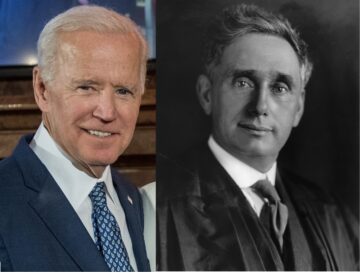
 I once wrote a political column for
I once wrote a political column for 
 I come to praise bakeries past and present. And older men and women faithfully carrying out their duties to their grandchildren.
I come to praise bakeries past and present. And older men and women faithfully carrying out their duties to their grandchildren.

 My Jewish maternal grandparents came to America just ahead of WWII. Nearly all of my grandmother’s extended family were wiped out in the Holocaust. Much of my grandfather’s extended family had previously emigrated to Palestine.
My Jewish maternal grandparents came to America just ahead of WWII. Nearly all of my grandmother’s extended family were wiped out in the Holocaust. Much of my grandfather’s extended family had previously emigrated to Palestine. According to Donald Trump, in
According to Donald Trump, in 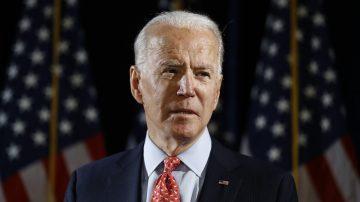
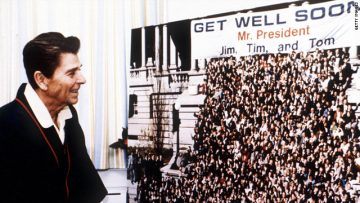
 People are basically good.
People are basically good. During the 1990s, the impossibility of a black president was so ingrained in American culture that some people, including many African Americans, jokingly referred to President Bill Clinton as the first “black president.” The threshold Clinton had passed to achieve this honorary moniker? He seemed comfortable around black people. That’s all it took.
During the 1990s, the impossibility of a black president was so ingrained in American culture that some people, including many African Americans, jokingly referred to President Bill Clinton as the first “black president.” The threshold Clinton had passed to achieve this honorary moniker? He seemed comfortable around black people. That’s all it took.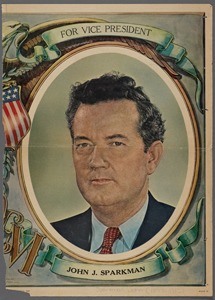 That Fifties-looking gent to your right is John J. Sparkman (D-Alabama) who was Adlai Stevenson’s running mate in 1952. Sparkman served in Congress for more than 40 years, the last 32 of them in the Senate. While not a star, he was associated with several pieces of important legislation and became Chair of the Senate Banking Committee and, late in his career, the Senate Foreign Relations Committee. He was also a committed segregationist and, in 1956, signed the Southern Manifesto, in emphatic opposition to Brown vs. Board of Education.
That Fifties-looking gent to your right is John J. Sparkman (D-Alabama) who was Adlai Stevenson’s running mate in 1952. Sparkman served in Congress for more than 40 years, the last 32 of them in the Senate. While not a star, he was associated with several pieces of important legislation and became Chair of the Senate Banking Committee and, late in his career, the Senate Foreign Relations Committee. He was also a committed segregationist and, in 1956, signed the Southern Manifesto, in emphatic opposition to Brown vs. Board of Education.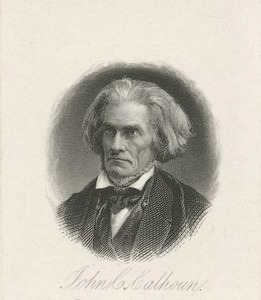 This scary-looking guy to your left is John C. Calhoun of South Carolina, who, during a truly extraordinary career that included being a Congressman, Senator, Secretary of State, and Secretary of War, also managed to sneak in two terms as Vice President under two very different Presidents, John Quincy Adams and Andrew Jackson. You are going to hear a lot over the next few weeks about “chemistry” between Joe Biden and his running mate. Suffice it to say that John C. Calhoun never had chemistry with anyone, except perhaps of the combustible kind. Mr. Jackson and Mr. Calhoun disagreed constantly, particularly on the enforcement of federal laws that South Carolina found not to its liking (including the juicily named “Tariff of Abominations”), which led Mr. Calhoun to resign the Vice Presidency during the Nullification Crisis in 1832.
This scary-looking guy to your left is John C. Calhoun of South Carolina, who, during a truly extraordinary career that included being a Congressman, Senator, Secretary of State, and Secretary of War, also managed to sneak in two terms as Vice President under two very different Presidents, John Quincy Adams and Andrew Jackson. You are going to hear a lot over the next few weeks about “chemistry” between Joe Biden and his running mate. Suffice it to say that John C. Calhoun never had chemistry with anyone, except perhaps of the combustible kind. Mr. Jackson and Mr. Calhoun disagreed constantly, particularly on the enforcement of federal laws that South Carolina found not to its liking (including the juicily named “Tariff of Abominations”), which led Mr. Calhoun to resign the Vice Presidency during the Nullification Crisis in 1832.